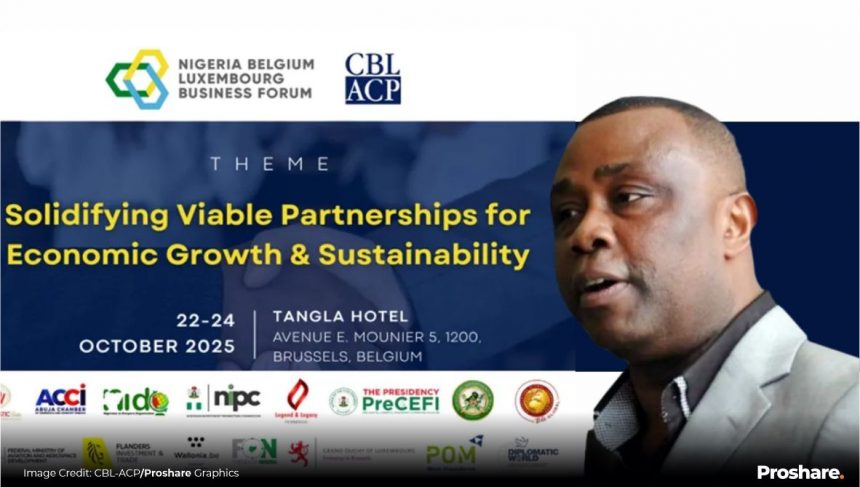When Ambassador Geert Muylle, Belgium’s Special Envoy on Energy Security and Critical Raw Materials, recently reflected on LinkedIn about the geopolitical pressures compelling Belgian industries to reorganize their value chains, his candour was refreshing. Few career diplomats articulate the inevitabilities now shaping the global industrial landscape with such precision.
In acknowledging that Belgian and European companies must re-engineer where and how they source, process, and trade, Ambassador Muylle touched a nerve that resonates far beyond Brussels. He spoke to a world where the once-invisible threads of globalisation are being re-stitched under duress by geopolitics, supply shocks, and the race for strategic autonomy.
The Road Ahead: Necessary but Difficult
The path ahead will not be easy. Belgium’s manufacturing and energy sectors, which have long been accustomed to stable access to raw materials and predictable logistics, now face a volatile mix of geopolitical fragmentation and cost inflation. New trade blocs, sanctions, and resource nationalism are redrawing supply chains that once relied on the seamless flow of goods. The friction is palpable: from delayed shipments and doubled input prices to stricter environmental and human-rights compliance regimes.
Moreover, the costs are not merely financial. Transitioning to diversified value chains entails institutional learning, managerial adaptation, and complex risk mapping. For small and medium-sized enterprises, which are the backbone of Belgium’s industrial fabric, these burdens can feel existential. Yet, the alternative —clinging to outdated dependencies —would be costlier still.
Navigating the Transition: Strategic Patience and Partnership
There are pragmatic ways to navigate this recalibration. First, diversification must be phased, not abrupt. Retaining legacy suppliers while developing new regional networks can reduce disruption. Second, the Belgian and European public sectors should provide blended finance mechanisms that de-risk early private investments abroad. These include risk-sharing instruments, guarantees, and development finance partnerships.
Equally important is capacity building. Resilient supply chains depend not only on where production occurs but also on the institutional strength of partners. Technical assistance, standards alignment, and digital traceability systems are critical. By investing in training, certification, and co-governance with partner nations, Belgium can ensure that diversification is not synonymous with dilution of quality.
Africa’s Low-Hanging Fruits — and Nigeria as Hub
In this context, Africa, and particularly Nigeria, presents both opportunities and necessities. As Europe seeks secure, sustainable, and ethically grounded supply chains, Africa’s vast resources, youthful demographics, and reform-minded markets offer fertile ground. Nigeria’s emergence as a regional economic hub positions it to anchor Belgian and European value-chain diversification efforts.
From renewable energy components and agro-processing to digital technology services and pharmaceuticals, sectors abound where Belgian expertise and Nigerian dynamism can meet. The opportunities lie not only in extracting materials but also in building local value, co-creating industries, and nurturing a generation of joint ventures that promote shared prosperity.
Projects of trust, modest, practical, and quickly executable, can serve as proof of concept. Belgian firms can start with semi-processing, packaging, or assembly facilities, gradually scaling up to full manufacturing. With digital oversight, transparent reporting, and sustainability audits, such ventures can align with both EU standards and African aspirations.
From “Unhealthy Dependencies” to Partnerships of Equals
Ambassador Muylle’s reference to “unhealthy dependencies” deserves attention. Whether in critical minerals, pharmaceutical precursors, semiconductors, or energy inputs, Europe’s reliance on concentrated suppliers exposes its strategic vulnerabilities. Yet dependency need not be synonymous with weakness. When grounded in mutual trust and shared benefits, interdependence can evolve into a source of strength.
Africa’s resource wealth, when paired with European technology and governance capacity, could yield precisely that: a partnership of equals. The transformation from dependency to partnership begins with co-ownership. This can be achieved through joint investment structures, knowledge transfer, and transparent governance. A supplier relationship extracts; a partnership empowers. The future of Europe’s strategic autonomy may well depend on how deliberately it cultivates such empowerment.
Belgium’s Long-Term Strength: Anchored in Values
Despite these disruptions, Belgium and Europe remain on solid ground. Our technological leadership, research ecosystems, rule-of-law frameworks, and commitment to sustainability are global benchmarks. The challenge is to deploy these strengths strategically, turning moral capital into competitive advantage.
If Europe can fuse its innovation power with the youthful ingenuity of African partners, it will diversify its value chains. But it will also redefine the ethics of globalisation itself. The future of trade need not be extractive. It can be restorative. And that vision, far from utopian, is already taking shape in pockets of cooperation across continents.
A Table for Solutions: The Nigeria Belgium Luxembourg Business Forum 2025
It is precisely this vision that animates the Nigeria Belgium Luxembourg Business Forum (NBLBF), convening next week in Brussels under the auspices of the CBL-ACP Chamber of Commerce. The Forum brings together policymakers, investors, development finance institutions, and private-sector actors from both continents to move the conversation from diagnosis to delivery.
This year’s edition focuses on energy, sustainable manufacturing, and digital transition. These are the very areas where new value-chain collaborations can thrive. NBLBF 2025 is not merely a networking event; it is a table of solutions, where Belgium’s quest for strategic autonomy meets Africa’s drive for industrial empowerment. It is a space where the spirit of Ambassador Muylle’s reflection —that geopolitics is compelling a reordering of economic reality —is not lamented but leveraged.
By fostering trust-based partnerships, the NBLBF and the CBL-ACP Chamber exemplify what twenty-first-century diplomacy should look like: pragmatic, inclusive, and business-anchored. They offer Belgium and its partners a platform to transform geopolitical inevitability into opportunity. And uncertainty into shared resilience.
Conclusion: Courage in Re-Definition
Ambassador Muylle’s insight captures a broader truth: the post-globalisation world is one where economic sovereignty must be earned, not assumed. For Belgium, this moment calls for courage. It calls for the courage to re-imagine where value is created, who participates, and how prosperity is shared.
Africa, and Nigeria in particular, offers a bridge between necessity and possibility. Through structured partnerships, co-investment, and institutional collaboration, the complex reorganisation ahead can yield not contraction but renewal.
As industries evolve through adaptation, diplomacy must lead the way. As dependencies shift, partnerships must deepen. And as Belgium recalibrates, it must do so not in retreat from the world, but in embrace of a new one: a fairer, more balanced, and profoundly interdependent world.
Credit: www.proshare.co
Stay ahead with the latest updates!
Join The Podium Media on WhatsApp for real-time news alerts, breaking stories, and exclusive content delivered straight to your phone. Don’t miss a headline — subscribe now!
Chat with Us on WhatsApp







